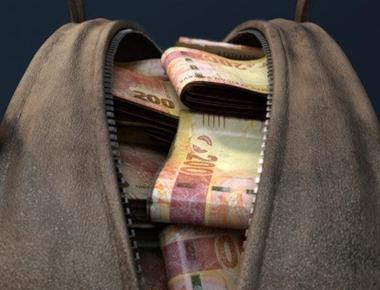
Pilot episode - Who wants to be a Millionaire... with small business fraud.

In no other period has cash been so hard to come but yet so easy to obtain. People staying home in this pandemic has spelt serious trouble for small and-medium enterprises (SME’s) in particular as the customers are the bloodline for small business, providing much needed cash flow that covers operating expenses.

According to studies in South Africa, one of the biggest reasons small businesses fail is a lack of cash flow. The pandemic has exposed many (and I mean MAAAAANNYY) infrastructural inefficiencies with each country dealing with Covid-19 and it’s undeniable small business owners are the least protected in regards to internal shocks within economic systems.
The initiative of governments to provide economic relief and stimulus packages to help small businesses survive and retain its employees was the correct response but possibly also attracted individuals who are not the most kosher.
What’s important is not truly the economic nitty gritty of SME’s but MORESO the loopholes these SME initiatives have. What we will learn is how a policy with good intentions may have created more fraudulent millionaires than in recent memory.

In the context of Namibia, SME’s are categorized as companies in the 1) manufacturing industry, employing less than 10 people, revenue of less than N$1 000 000 and a capital basis of less than N$500 000. 2) Non-manufacturing industry have less than 5 employees, revenue of less than N$250 000 and a capital basis of less than N$100 000. Companies that fit these criteria and managed to obtain this relief fund would cover operating expenses such as rent; utilities; employee wages and salaries; and debt.
It’s important to understand the guideline of what a small business is as one can successfully submit fraudulent claims worth millions in either forgivable loans or grants (if that’s how you really move in these skreets).

If you state you have a much smaller staff, you can submit false claims with multiple companies registered under someone else’s name, thereby receiving multiple small amounts, going undetected i.e. claiming you’re a fake small business. E.g Atlantic Diving Supply allegedly did this (I have to say that for legal reasons) .This is a massive loophole to exploit. Other loopholes that may have been used were:
• Forging/ falsifying documents • Not being required to submit your tax documents (These loopholes are examples of how people received huge covid relief funds in the US. This may not be applicable in Namibia.)
It’s interesting to observe how African countries have responded to the global pandemic. During the 21-Day lockdown, Namibia’s economic stimulus and relief package (a total of N$8,1 billion for the pandemic) saw N$800m allocated to businesses providing goods & services to the government receive overdue payment.

In addition to this, a N$500 million loan scheme will be facilitated and guaranteed by the government for non-agricultural small businesses that have experienced significant losses of turnover.
South Africa had their massive U$4.3bn (or N$70.52bn) loan approved to aid their nation during the crisis, while Nigeria was aided with U$3.4bn (or N$55.76bn) in emergency financial assistance.
Of this amount, U$195.5 million (or N$3.2bn) will be directly allocated to support small business owners affected. All of the countries mentioned have taken these massive loans from the IMF.

While these initiatives were set out with good intentions, cases have surfaced of alleged ‘illegitimate’ businesses (I have to say that for legal reasons) trying to gain from the situation. Recently the Specialised Commercial Crime Court in Pretoria found a woman guilty of fraud by illegitimately receiving R700 000 in Covid-19 TERS grants. This led to her being slapped with a 3 year suspended jail sentence.
The article further reads the money was meant to be used for her struggling business but she spent it on herself. The Unemployment Insurance Fund (UIF) in South Africa has seen a spike in fraudulent TERS cases since the country’s first lockdown.

It’s still early to know the full amount the small business loan schemes have been lost through fraud but rest assured more investigations will shed light on even more people who managed to line their pockets with covid relief funds.
(*This blog was inspired by the YouTuber Coffeezilla, an American Youtuber that aside from being entertaining, helps uncover scams, fraudsters and fake gurus preying on people. Link to his channel has been included in this piece.)
Related Posts






Quick Links
Legal Stuff

